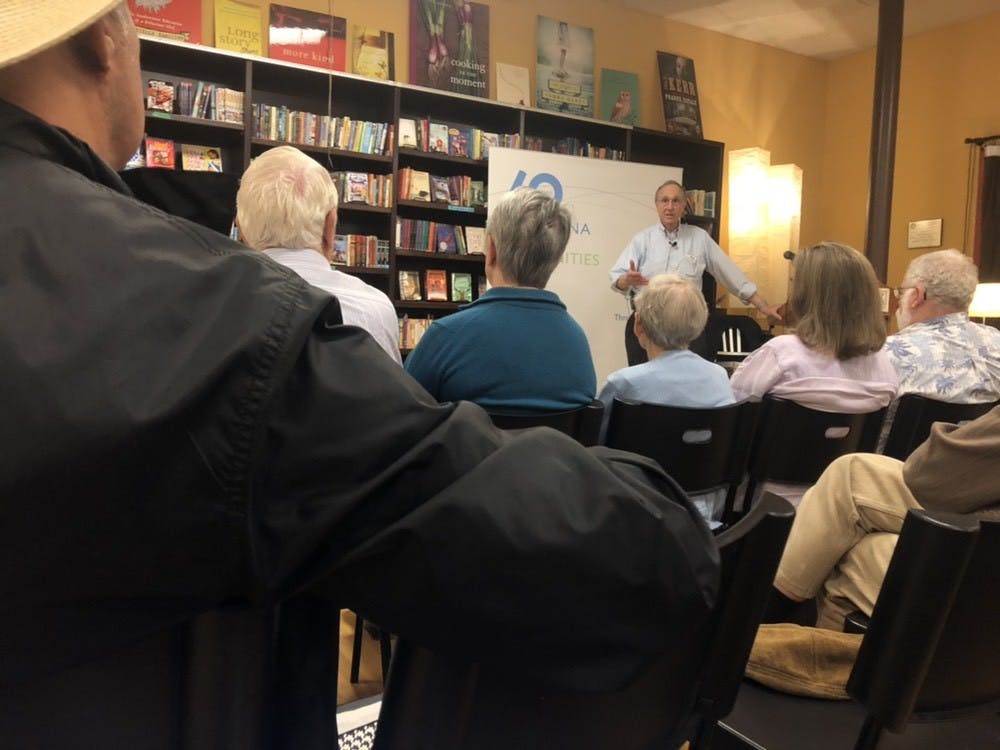American Military Historian Richard Kohn, a UNC professor emeritus of History and Peace, War and Defense, spoke Wednesday at Flyleaf Books about the tumultuous relationship between the military and Presidents Barack Obama and Donald Trump.
The lecture, titled “The U.S. Military and the President under Obama and Trump,” is the last of three events in the “Warfare, Society and the Military” series. The series was presented by Carolina Public Humanities, who said on its website that, “with more than 50 conflicts currently being fought around the world, we should try to understand the forces that cause them, how they are waged, and how we can end and prevent wars.”
“This is our new series, a military history series, that we put on because we were noticing that, in our public programing, military topics are very popular,” said Max Owre, the executive director of Carolina Public Humanities and a professor of history.
Carolina Public Humanities — whose mission, Owre said, is to share “the scholarship of UNC's entire state in any way we can” — started the program off with this three-part series, featuring three “superstars” in the field, including Kohn.
Kohn started his lecture by comparing the two most recent U.S. presidents’ backgrounds, pointing out that “no two presidents are more different than Barack Obama and Donald Trump.”
“While Obama was a cautious, patient, calculated, whip-smart intellectual and a compromiser, Trump was an impulsive, reactive, self-obsessed, vindictive to the point of cruelty, an unread and ignorant brawler, who reveled in breaking norms and putting on a show,” Kohn said.
But Kohn said that these two outsiders are both driven individuals who have difficulty trusting others and little interest in the military prior to their runs for president.
Kohn then detailed the deteriorating relationship that Democratic presidents have had with the military in the 20th century and explained that Obama came into office with a strong national security plan, trying not to fall into this pattern by promising reform resulting in equal or greater resources.
Trump came into the campaign with ideas of widespread reform by improving the budget, as well, but his were more superficial and vague, Kohn said. He pointed out Trump’s expression of his dissatisfaction with military leadership.



